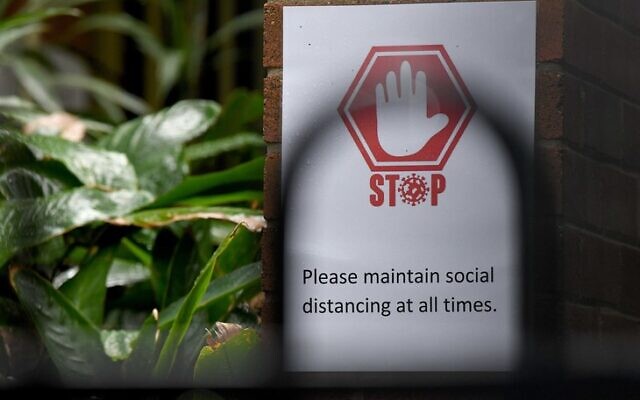NSW Jewish community urged to remain vigilant
'There is a very real risk of people in our community becoming complacent and putting themselves and others at risk'.
AS COVID-19 restrictions continue to ease, the NSW Jewish community is being urged to remain vigilant to avoid a renewed outbreak.
As of this Tuesday, there were only seven active cases in the state, however Jewish Emergency Management Plan (JEMP) medical subcommittee chair Richard Glass said this is not a reason for members of the community to let their guard down.
“There is a very real risk of people in our community becoming complacent and putting themselves and others at risk,” he said.
“The COVID-19 virus has not gone away. An outbreak such as has occurred in Melbourne could easily happen in Sydney.”
He said that due to the relatively low incidence of the disease in Sydney, “most people don’t know anyone who has been badly affected therefore they don’t see it as a clear and present danger”.
Glass mentioned how his own GP, a healthy man in his early 40s, had been “seriously unwell” for six weeks and was left suffering from myocarditis and epilepsy as result of contracting the illness.
“While elderly people and others with vulnerabilities are most at risk … anyone can be infected,” he said.
Senior emergency specialist Dr Susan Hertzberg said the Victorian spike “just goes to show how cases can emerge very quickly”.
“The concern for us is the degree of asymptomatic spread,” she said, noting that younger people without symptoms can be “super spreaders”.
“Overseas there has been a large rise in the rate of infection among younger people,” she said.
“The risk is hard to quantify because we haven’t got a full appreciation of how much asymptomatic spread is happening.”
Jewish GP and media personality Ginni Mansberg noted that the Jewish community is “older by demographic and particularly vulnerable”.
“Even if you at age 35 or 40 were to have an extremely unpleasant flu with a few weeks off work and then recover, it could be far worse than that for your mum or dad,” she said.
Once in hospital, she said patients cannot have visitors and those who succumb “die alone, only with the staff of the hospital with them”.
“They’re unable to breathe which is an incredibly terrifying and awful experience and I think dying alone without being able to say goodbye is just an awful way to go.”
She added, “The best thing you can do for yourself is basically to have no contact or to keep 1.5 metre distance from people, and rigorous hand washing and try not to touch your face.”


comments